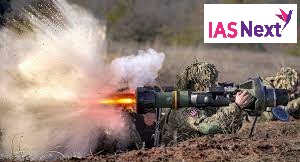CURRENT AFFAIRS
Get the most updated and recent current affair content on Padhaikaro.com
What are cluster bombs and thermobaric weapons?
- IAS NEXT, Lucknow
- 04, Mar 2022

Reference News:-
Russia has resorted to the use of dangerous thermobaric bombs — or vacuum bombs — in Ukraine.
- Cluster weaponry has been banned by the 2008 Convention on Cluster Munitions; however, neither Ukraine nor Russia were signatories at the convention.
Thermobaric weapons:
These are called vacuum bombs as they suck in oxygen from surrounding areas to generate high-voltage explosions.
- The blast wave is of a greater intensity and duration than conventional bombs and can vapourise humans.
- While they cannot be used in taking down tanks and other such military vehicles, they can dismantle civilian spaces, like residential or commercial complexes.
Cluster bombs:
Cluster munitions are non-precision weapons that are designed to injure or kill human beings indiscriminately over a large area, and to destroy vehicles and infrastructure such as runways, railway or power transmission lines.
- They can be dropped from an aircraft or launched in a projectile that spins in flight, scattering many bomblets as it travels.
- Many of these bomblets end up not exploding, but continue to lie on the ground, often partially or fully hidden and difficult to locate and remove, posing a threat to the civilian population for long after the fighting has ceased.
Convention on Cluster Munitions:
It is an international treaty that prohibits all use, transfer, production, and stockpiling of cluster bombs, a type of explosive weapon which scatters submunitions (“bomblets”) over an area.
- Additionally, the Convention establishes a framework to support victim assistance, clearance of contaminated sites, risk reduction education, and stockpile destruction.
- The convention was adopted on 30 May 2008 in Dublin.
- As of date, there are 110 state parties to the convention, and 13 other countries have signed up but are yet to ratify it.